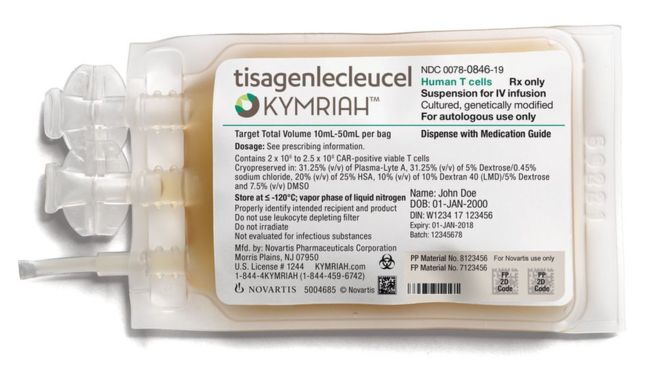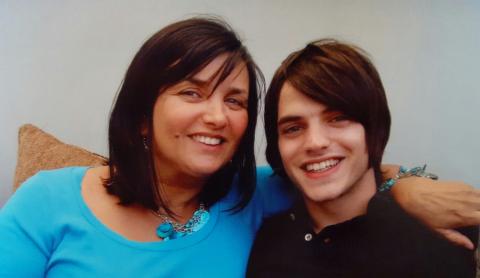An exciting new therapy for people with blood cancer has been approved for use in the USA. It involves collecting a patient’s own immune cells, modifying them to target cancer cells more efficiently and then injecting them back into the patient. The treatment, called Kymriah and produced by drug company Novartis, is one of many in development that utilises a process called adoptive cell transfer (ACT) to produce CAR-T cells.
What exactly is CAR-T cell treatment?
T-cells are an important part of your immune system. They can recognise abnormal cells, such as cancerous cells, and destroy them. They do this through receptors on their surface that bind to proteins found on cancerous cells but not on normal cells. By using ACT, scientists can manipulate the DNA of harvested T-cells so they express a new type of receptor called a Chimeric Antigen Receptor (CAR). This means that the T-cells become CAR-T cells.
CARs have two main functions, firstly they bind to targets on the cancer cell but they also send out signals that attract other immune cells to the site of the cancer cell and instruct them to rapidly reproduce. This increases the chance of all cancer cells being removed. CARs can be modified genetically to improve this signalling and to bind the best possible cancer target. Kymriah binds to a protein called CD19 that is highly expressed by many types of lymphoma and other cancers.
How successful has it been?
Acute lymphoblastic leukaemia (ALL), one of the most common childhood cancers, can often be treated using chemotherapy or a stem cell transplant. Unfortunately if treatment fails there are very few options left for these patients once they relapse. In a recent clinical trial, Kymriah was given to 63 patients with relapsed ALL and after three months, 83% of patients showed complete remission.
Does the treatment have any side effects?
Although encouraging T-cells to move to tumour cells and then rapidly increase in number is an important step in removing cancer, it can cause dangerous side effects if not controlled properly. The rapid release of signalling molecules from this large influx of T-cells can lead to a side effect known as Cytokine Release Syndrome. This can cause high fevers and low blood pressure and in very extreme cases has been known to be fatal.
What does this mean for the future?

'This first proof of principle shows that modifying a patients own immune cells can have a huge impact on outcome and may lead to a long term cure for their disease.'
This first proof of principle shows that modifying a patients own immune cells can have a huge impact on outcome and may lead to a long term cure for their disease. Unfortunately for now, there are only a few UK based CAR-T cell trails that have strict criteria for joining. However this clinical trial has provided hope and a new viable treatment option to patients that previously had none.
Questions still have to be answered regarding Kymriah’s ability to work in the long term but the initial data looks very promising. It will also be interesting to see if the treatment can be applied to other blood cancers and solid tumours as well.
This research also raises the possibility of modifying a donor’s stem cells prior to transplantation further down the line. In theory this could help to improve the efficiency of engraftment and development of the recipient’s new immune system. However it could take many years of research to fine tune this process for everyone.
More information about Kymriah and CAR-T cell therapy in general is available at: cancer.gov/about-cancer/treatment/research/car-t-cells
